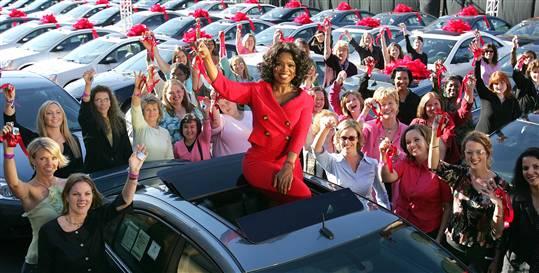Facebook PHP shows value in open source equity


It follows by just a few weeks its becoming a top-level sponsor of Apache. (What is Oprah Winfrey doing on a tech blog? Patience, grasshopper.)
Both moves represent good open source citizenship. Cynics will say it's the least the company can do. But while PHP is open source, it's not subject to a copyleft license. And in tough economic times it's easy to justify keeping your hand in your pocket, far away from your wallet.
I argue that both moves serve an important business purpose. Facebook is targeting the Internet Generation, people who grew up with the resource (like my own kids, now 21 and 18). These consumers understand, as their parents did not, the obligations that come with benefiting from open source.
I'm not saying my daughter has a Richard Stallman poster over her bed. She doesn't. (Although if you made one with black light it could probably make some money.) Something more subtle is at work. Everyone likes to believe the companies they support are good citizens. These are visible ways of proving that.
While copyleft licenses bring a sharing requirement to those who benefit from open source, there is seldom much compulsion involved. If your company adds a tweak to a GPL program and keeps it secret, the FSF police aren't going to be banging on your door. (Give up the code. We have your server surrounded.)
But the brand equity of any service business is based in part on the public image it projects. I would argue that Facebook overcame MySpace in large part because of a perception that MySpace was trying to control consumers while Facebook had a more open attitude. With switching costs near zero reputation matters.
The fact that all this makes good business sense for Facebook should not, however, lead to the cynical assumption of "they're just doing it for the money." Contributions of code and cash for projects is a voluntary activity. The phrase "don't look a gift horse in the mouth" applies.
The point is that in an open source world, how you treat open source communities can make a difference on the bottom line. When switching costs are zero, anything an Internet company can do to prove it's a good Netizen is both useful and good.
It seems Facebook groks that. It's a good thing. You get free code and you get free code, everybody gets free code.
(If you don't think Oprah Winfrey made up in reputation more than those cars cost her, you don't know business. And if you think she only did it for that reason, you are too cynical to succeed at it, business grasshopper)